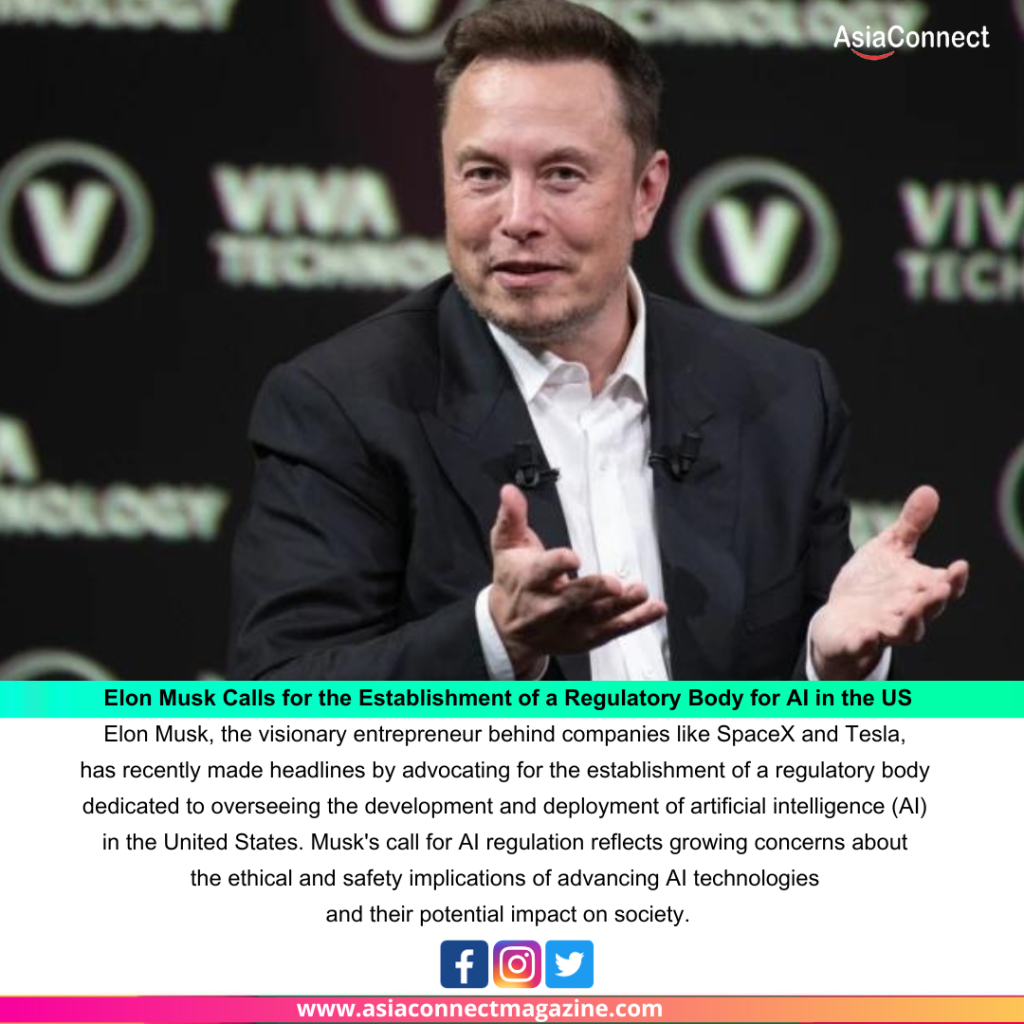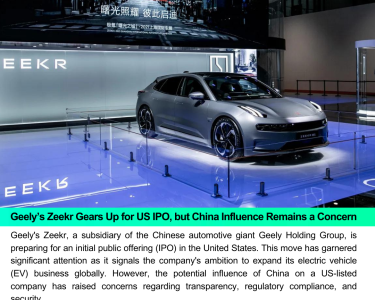
Elon Musk, the visionary entrepreneur behind companies like SpaceX and Tesla, has recently made headlines by advocating for the establishment of a regulatory body dedicated to overseeing the development and deployment of artificial intelligence (AI) in the United States. Musk’s call for AI regulation reflects growing concerns about the ethical and safety implications of advancing AI technologies and their potential impact on society.
The Growing Influence of AI
Artificial intelligence has made significant strides in recent years, permeating various aspects of our lives, from virtual personal assistants like Siri and Alexa to advanced machine learning algorithms that power autonomous vehicles and healthcare diagnostics. AI has the potential to bring about transformative changes in industries ranging from healthcare and finance to transportation and manufacturing.
However, this rapid advancement has also raised several critical questions and concerns. AI systems, particularly those based on deep learning and neural networks, can exhibit complex behaviors that are difficult to predict or control. This unpredictability can lead to ethical dilemmas and potential risks, such as biased algorithms, job displacement, and security vulnerabilities.
Elon Musk’s Stance
Elon Musk has been an outspoken advocate for responsible AI development and regulation. He believes that without proper oversight, AI could pose significant risks to humanity. Musk’s concerns are rooted in the idea that AI systems, if left unregulated, could potentially surpass human intelligence and make decisions that may not align with human values and interests.
Musk’s call for a regulatory body dedicated to AI aligns with his belief that government agencies need to play a proactive role in ensuring the ethical and safe development of AI technologies. Such a regulatory body would be responsible for setting standards, conducting safety assessments, and establishing guidelines for AI research and deployment.
Challenges and Considerations
While the idea of an AI regulatory body has gained traction, there are several challenges and considerations to address:
- International Cooperation: AI is a global phenomenon, and regulatory efforts may need to extend beyond national borders. Coordinating international standards and regulations will be essential to ensure a unified approach to AI governance.
- Balancing Innovation and Regulation: Striking the right balance between fostering innovation and safeguarding against potential risks is a complex task. Regulations should encourage responsible AI development without stifling progress.
- Ethical AI: Developing ethical AI systems that respect human values and principles is a fundamental concern. Ethical guidelines and frameworks should be central to regulatory efforts.
- Transparency and Accountability: Ensuring transparency in AI systems and establishing mechanisms for accountability are vital aspects of regulation. This includes addressing issues of bias, fairness, and accountability in AI decision-making.
- Public Input: Involving the public in AI regulatory discussions is essential to ensure that regulations reflect societal values and concerns. Public input can help shape ethical guidelines and regulations.
The Broader AI Landscape
Elon Musk’s call for AI regulation is part of a broader conversation surrounding AI ethics and governance. Tech giants, policymakers, and researchers have been engaging in discussions about the responsible development and deployment of AI technologies.
In 2020, OpenAI, an organization co-founded by Musk, introduced the OpenAI Charter, which outlines principles for safe and beneficial AI development. The charter emphasizes long-term safety, technical leadership, and the importance of broadly distributing benefits from AI.
Conclusion
Elon Musk’s call for the establishment of an AI regulatory body in the United States reflects growing recognition of the need for responsible AI development and governance. As AI continues to advance, addressing ethical concerns and potential risks is crucial to harnessing its full potential for the benefit of society.
The debate over AI regulation is far from settled, and it will require collaboration among governments, industry leaders, researchers, and the public to develop effective and balanced regulatory frameworks. In navigating the future of AI, a thoughtful and proactive approach to regulation will be essential to ensure that AI technologies enhance, rather than endanger, human well-being and prosperity.




